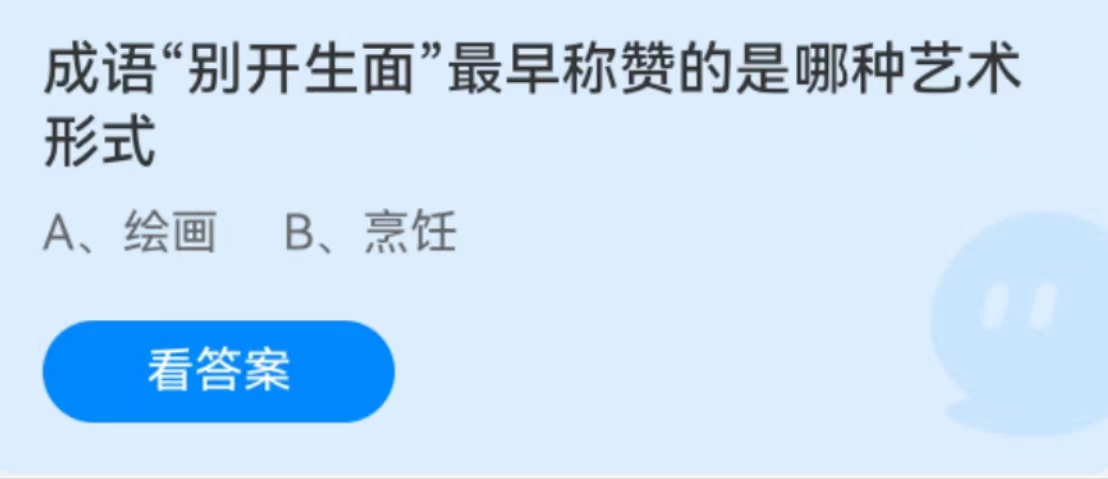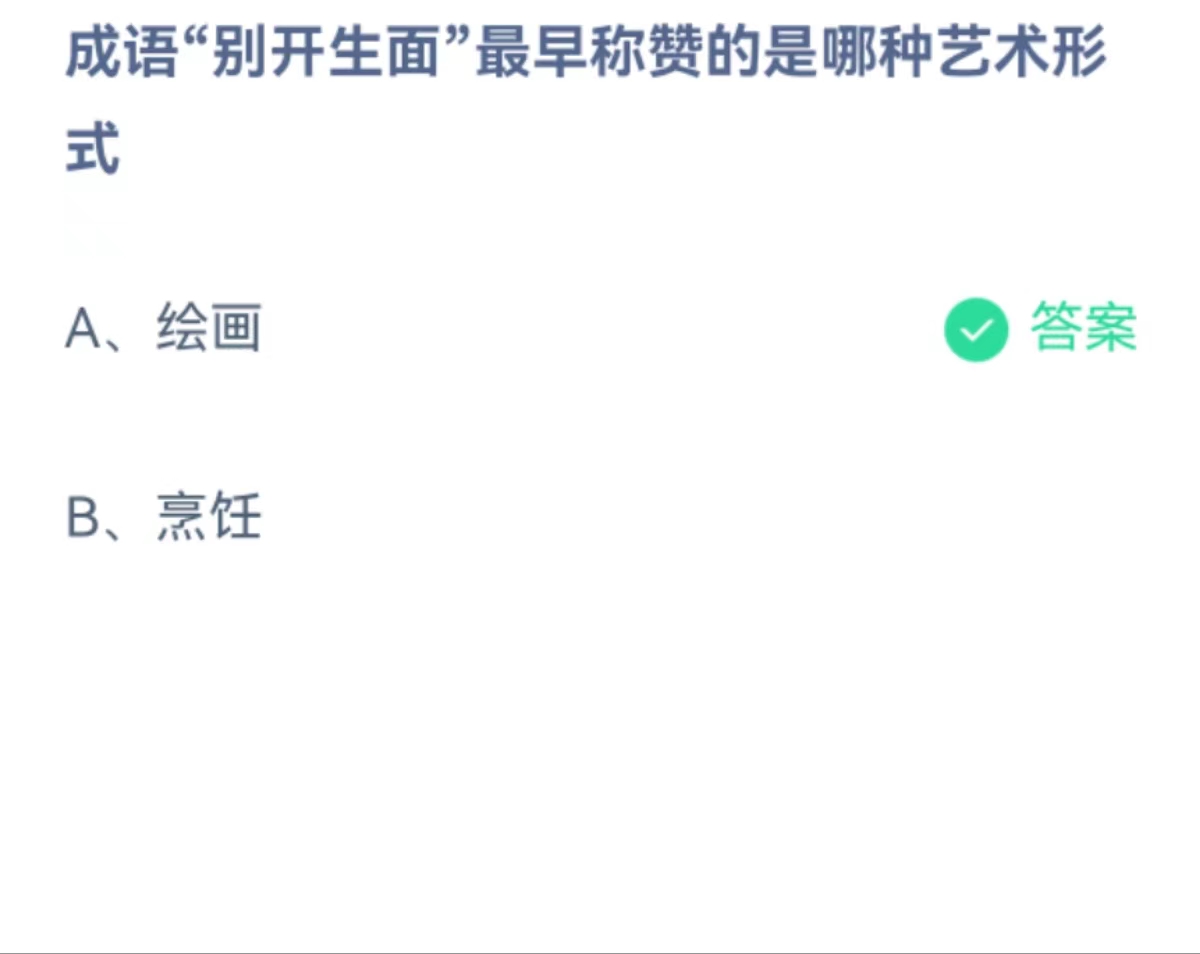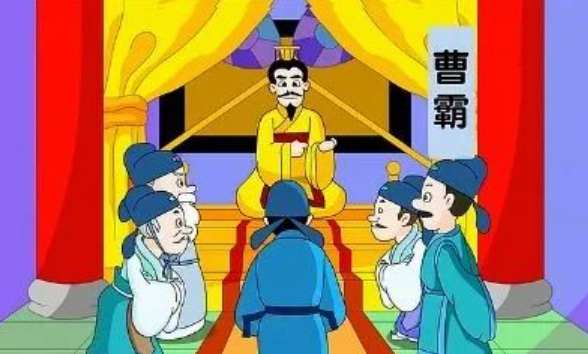Home >Software Tutorial >Mobile Application >Ant Manor February 5: What art form was the first to be praised by the idiom, which is unique?
php Editor Banana today brings you a guide to Ant Manor’s February 5th event. In this campaign, players will explore the original art form praised by idioms. This interesting activity will lead players to explore history and culture, and show the unique charm of idioms, allowing players to appreciate the charm of culture in the game. Join Ant Manor now and discover the unique beauty of idioms together!

Ant Manor Today’s Answer Summary
Question: Which art form was first praised by the idiom "extraordinary"?
Answer: Painting

Answer analysis:
1. "Creating new perspectives" was first used by Du Fu to praise other people's painting skills;
2. In Du Fu's poem "Paintings Presented to General Cao Ba", there is a line that says "Ling Yan's meritorious officials have less color, but the general's brush strokes are full of life." describes Cao Ba's superb painting skills;
3. The characters in the old paintings have a new look after he repainted them. Later, people used the term "unconventional" as a metaphor for creating new patterns or new forms.

The above is the detailed content of Ant Manor February 5: What art form was the first to be praised by the idiom, which is unique?. For more information, please follow other related articles on the PHP Chinese website!